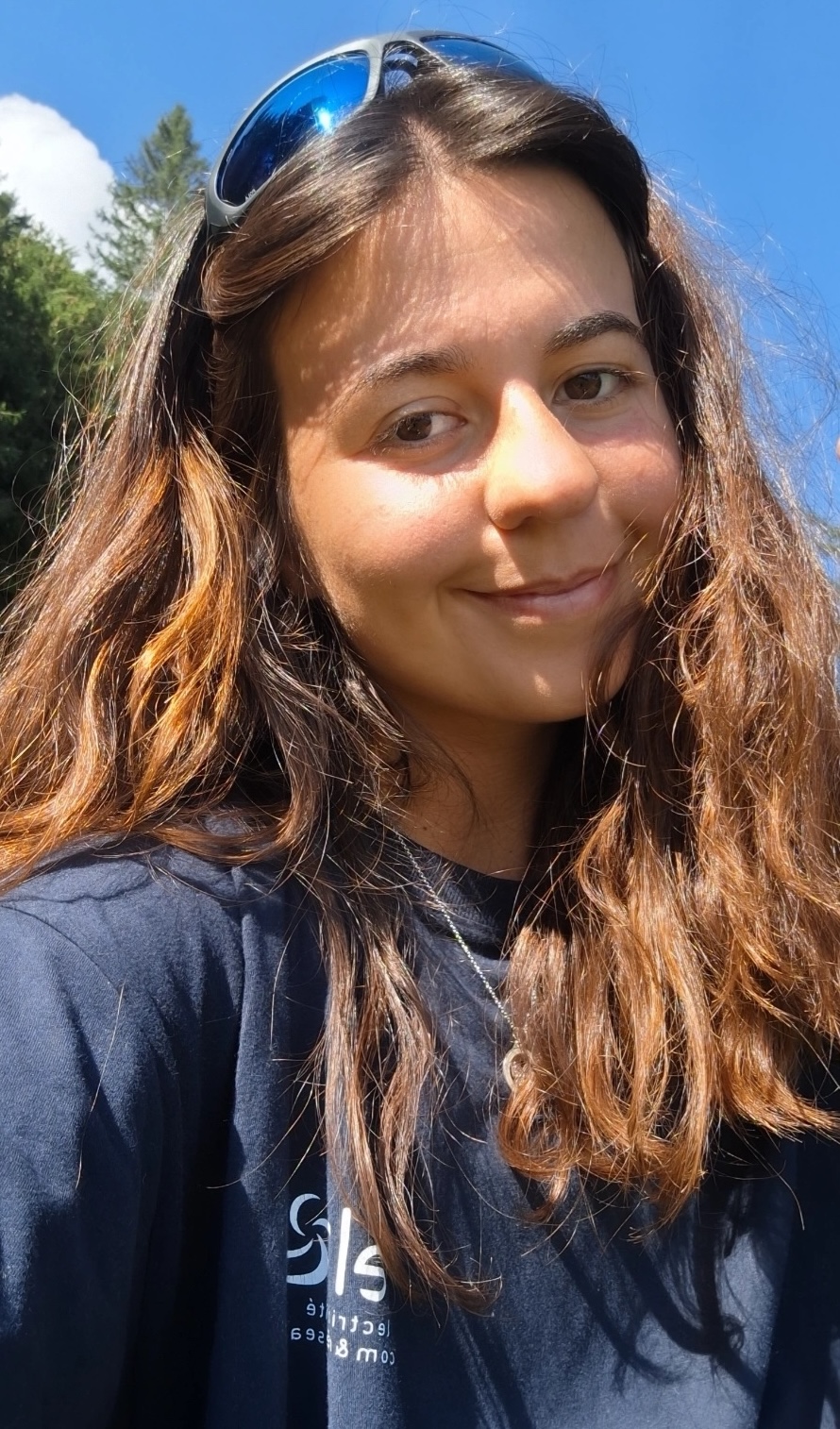I am an evolutionary (developmental) biologist fascinated by the variation that exists in Nature.
My main research interests lie in a combination of Evolution, Ecology, Genetics, and Entomology. In particular, I am interested in understanding how external conditions experienced during development can generate phenotypic variation (i.e. look at the environment as more than a filter of the existing variation, through natural selection). I have been interested in developmental plasticity, the property by which the same genotype produces different phenotypes, depending on the external conditions where development occurs, since my master’s studies in Evolutionary Developmental Biology at the University of Lisbon (2020-2021). It was, in fact, through two courses taught by Dr. Patrícia Beldade and, after, some weeks at the Eco-Evo-Devo lab that I developed a passion for these topics (and butterfly biology).
At Kawecki’s Lab, my Ph.D. work aims to contribute to a big project addressing the general question: how evolution shapes animal physiology in response to prolonged exposure to juvenile undernutrition? Most animal populations face periods of food shortage, resulting in physiological stress and reduced Darwinian fitness. If sufficiently frequent, such periods of undernutrition are likely to be important factors of natural selection, leading to specific physiological or behavioral adaptations (Cavigliasso et al. 2023). Most juvenile animals do not have the option of arresting their development to wait out famines; they have no choice but to continue to develop and grow with whatever nutrients they can obtain (Kawecki et al. 2021).
After more than 250 generations exposing larvae to a poor nutrient diet, the selected population grows more on the poor diet than the controls (on a standard diet), but the probability of egg-to-adult survival is lower, which means that they have a cost – higher mortality. In my Ph.D., I propose to understand: 1) the role of a candidate gene – fezzik (fiz) which encodes an ecdysone oxidase acting on both ecdysone and 20-dehydroecdysone) in adaptation to undernutrition using Drosophila melanogaster; 2) the correlation between ecdysone oxidase activity and fiz expression; 3) the effect of fiz on composition and concentration of ecdysteroids and 4) the effects of fiz expression on metabolite abundance and nutrient acquisition.
Outside academia, I like to go to the field, identify (insect) species, collect some specimens, breed butterflies, draw and paint, take photographs, and do any kind of sports!
From 2015 to 2020, I was a student of the Master's in Pharmaceutical Sciences at the Faculty of Pharmacy of the University of Lisbon (FFUL). In 2020, after my thesis on co-infection between HIV and intestinal helminths at the Host-Pathogen Interaction group (FFUL), entitled "Intestinal helminth infections in HIV-infected individuals: new importance in immunological and clinical evolution," I received a degree in Pharmacy from the University of Lisbon.
In the same year, I started working as a pharmacist and enrolled in the Master's in Evolutionary and Developmental Biology (BED) at the Faculty of Sciences of the University of Lisbon (FCUL). I developed my M.Sc. research work at BIOPOLIS/CIBIO's Applied Phylogenetics group under the supervision of Dr. David James Harris (CIBIO, FCUP) and Dr. Margarida Matos (cE3c, FCUL). My thesis, entitled "Integrative taxonomic study on selected reptiles from the Atlas Mountains, North Africa," involved international collaborations (with Dr. Tahar Slimani from the University of Cadi Ayyad, Morocco, and Dr. Johnathan Marshall from Weber State University, USA).
My first paper as a 2nd author, "New localities and lineages of the Atlas dwarf lizard Atlantolacerta andreanskyi identified using mitochondrial DNA markers" (Herpetozoa), was published in 2023 and includes part of my MSc thesis' work.
In September 2021, I also started a Bachelor's in Biology at the Faculty of Sciences of the University of Porto (FCUP), and I will receive a degree in Biology in 2024. In 2022, I applied for a fellowship from the University of Sorbonne, and I was allowed to participate in a 6-week course in Molecular and Developmental Biology at Sorbonne University and the Institut Curie, Paris, where I had the possibility to learn more advanced techniques and experience (for the first time) studying abroad.
I successfully defended my BED M.Sc. thesis on March 24th, 2023, and obtained the grade of 18 (out of 20). This earned me my second M.Sc. degree, this time in Biology. In May 2023, I left my work as a pharmacist, and I came back to Lisbon.
While waiting for the FCT-PhD fellowship results, I spent some weeks at the Eco-Evo-Devo lab (cE3c, FCUL), led by Dr. Patrícia Beldade. In August 2023, I was admitted to the Doctoral Program in Biodiversity, Genetics, and Evolution (BIODIV) at the Faculty of Sciences, University of Lisbon/cE3c, but decided not to start graduate school without a fellowship. In September 2023, I started working as a research technician at the Host-Microorganism Interactions lab (Instituto Gulbenkian de Ciência), under the ERC project WOLBAKIAN. The contract ended on June 29th, 2024, and I continued working there for 1 more month and a half (until 16th August 2024).
After 2 years of waiting for an FCT fellowship to start my Ph.D. with Dr. Beldade and Dr. David Duneau in developmental plasticity in adult immunity (with Bicyclus anynana butterflies), I moved to Switzerland in September 2024 to start a Ph.D. in Ecology and Evolution on a different project, aiming to study adaptation to undernutrition, using the fruit fly Drosophila melanogaster. This project is under the supervision of Dr. Tadeusz Kawecki (Experimental Evolutionary Biology Lab, UNIL).
Harris, D.J. et al., "New localities and lineages of the Atlas dwarf lizard Atlantolacertaandreanskyi identified using mitochondrial DNA markers." Herpetozoa (2023): https://zoobank.org/938CBE6D-3336-49A1-9290-106495B1A632.
There is no publication for the moment

